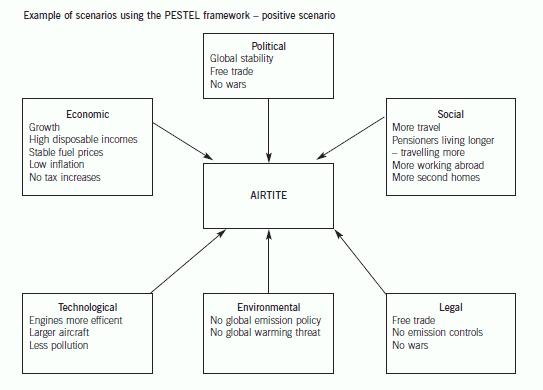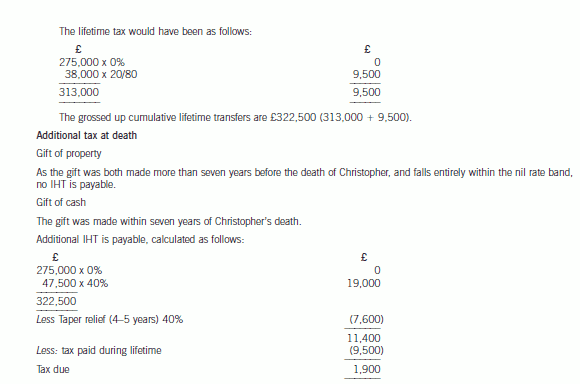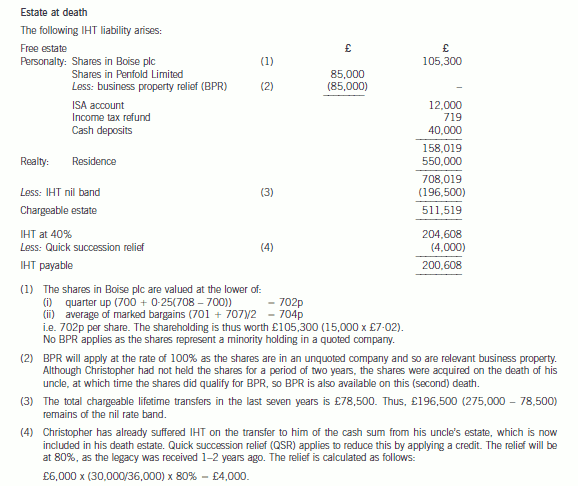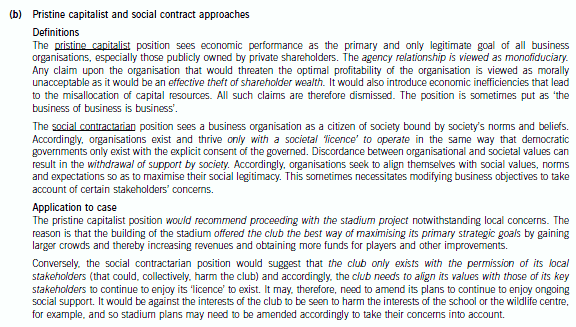(b) (i) Explain, by reference to Coral’s residence, ordinary residence and domicile position, how the rentalincome arising in respect of the property in the country of Kalania will be taxed in the UK in the tax year2007/08. State the strategy that Coral s
题目
(b) (i) Explain, by reference to Coral’s residence, ordinary residence and domicile position, how the rental
income arising in respect of the property in the country of Kalania will be taxed in the UK in the tax year
2007/08. State the strategy that Coral should adopt in order to minimise the total income tax suffered
on the rental income. (7 marks)
相似问题和答案
第1题:
(ii) Explain the income tax (IT), national insurance (NIC) and capital gains tax (CGT) implications arising on
the grant to and exercise by an employee of an option to buy shares in an unapproved share option
scheme and on the subsequent sale of these shares. State clearly how these would apply in Henry’s
case. (8 marks)
(ii) Exercising of share options
The share option is not part of an approved scheme, and will not therefore enjoy the benefits of such a scheme. There
are three events with tax consequences – grant, exercise and sale.
Grant. If shares or options over shares are sold or granted at less than market value, an income tax charge can arise on
the difference between the price paid and the market value. [Weight v Salmon]. In addition, if options can be exercised
more than 10 years after the date of the grant, an employment income charge can arise. This is based on the market
value at the date of grant less the grant and exercise priced.
In Henry’s case, the options were issued with an exercise price equal to the then market value, and cannot be exercised
more than 10 years from the grant. No income tax charge therefore arises on grant.
Exercise. On exercise, the individual pays the agreed amount in return for a number of shares in the company. The price
paid is compared with the open market value at that time, and if less, the difference is charged to income tax. National
insurance also applies, and the company has to pay Class 1 NIC. If the company and shareholder agree, the national
insurance can be passed onto the individual, and the liability becomes a deductible expense in calculating the income
tax charge.
In Henry’s case on exercise, the difference between market value (£14) and the price paid (£1) per share will be taxed
as income. Therefore, £130,000 (10,000 x (£14 – £1)) will be taxed as income. In addition, national insurance will
be chargeable on the company at 12·8% (£16,640) and on Henry at the rate of 1% (£1,300).
Sale. The base cost of the shares is taken to be the market value at the time of exercise. On the sale of the shares, any
gain or loss arising falls under the capital gains tax rules, and CGT will be payable on any gain. Business asset taper
relief will be available as the company is an unquoted trading company, but the relief will only run from the time that
the share options are exercised – i.e. from the time when the shares were acquired.
In Henry’s case, the sale of the shares will immediately follow the exercise of the option (6 days later). The sale proceeds
and the market value at the time of exercise are likely to be similar; thus little to no gain is likely to arise.
第2题:
(d) Explain how Gloria would be taxed in the UK on the dividends paid by Bubble Inc and the capital gains tax
and inheritance tax implications of a future disposal of the shares. Clearly state, giving reasons, whether or
not the payment made to Eric is allowable for capital gains tax purposes. (9 marks)
You should assume that the rates and allowances for the tax year 2005/06 apply throughout this question.
(d) UK tax implications of shares in Bubble Inc
Income tax
Gloria is UK resident and is therefore subject to income tax on her worldwide income. However, because she is non-UK
domiciled, she will only be taxed on the foreign dividends she brings into the UK.
Dividends brought into the UK will be grossed up for any tax paid in Oceania. The gross amount is taxed at 10% if it falls
into the starting or basic rate band and at 321/2% if it falls into the higher rate band. The tax suffered in Oceania is available
for offset against the UK tax liability. The offset is restricted to a maximum of the UK tax on the dividend income.
Capital gains tax
Individuals are subject to capital gains tax on worldwide assets if they are resident or ordinarily resident in the UK. However,
because Gloria is non-UK domiciled and the shares are situated abroad, the gain is only taxable to the extent that the sales
proceeds are brought into the UK. Any tax suffered in Oceania in respect of the gain is available for offset against the UK
capital gains tax liability arising on the shares.
Any loss arising on the disposal of the shares would not be available for relief in the UK.
In computing a capital gain or allowable loss, a deduction is available for the incidental costs of acquisition. However, to be
allowable, such costs must be incurred wholly and exclusively for the purposes of acquiring the asset. The fee paid to Eric
related to general investment advice and not to the acquisition of the shares and therefore, would not be deductible in
computing the gain.
Taper relief will be at non-business asset rates as Bubble Inc is an investment company.
Inheritance tax
Assets situated abroad owned by non-UK domiciled individuals are excluded property for the purposes of inheritance tax.
However, Gloria will be deemed to be UK domiciled (for the purposes of inheritance tax only) if she has been resident in the
UK for 17 out of the 20 tax years ending with the year in which the disposal occurs.
Gloria has been running a business in the UK since June 1992 and would therefore, appear to have been resident for at least
15 tax years (1992/93 to 2006/07 inclusive).
If Gloria is deemed to be UK domiciled such that the shares in Bubble Inc are not excluded property, business property relief
will not be available because Bubble Inc is an investment company.
第3题:
(b) Explain how the process of developing scenarios might help John better understand the macro-environmental
factors influencing Airtite’s future strategy. (8 marks)
(b) Carrying out a systematic PESTEL analysis is a key step in developing alternative scenarios about the future. Johnson and
Scholes define scenarios as ‘detailed and plausible views of how the business environment of an organisation might develop
in the future based on groupings of key environmental influences and drivers of change about which there is a high level of
uncertainty’. In developing scenarios it is necessary to isolate the key drivers of change, which have the potential to have a
significant impact on the company and are associated with high levels of uncertainty. Development of scenarios enables
managers to share assumptions about the future and the key variables shaping that future. This provides an opportunity for
real organisational learning. They are then in a position to monitor these key variables and amend strategies accordingly. It
is important to note that different stakeholder groups will have different expectations about the future and each may provide
a key input to the process of developing scenarios. By their very nature scenarios should not attempt to allocate probabilities
to the key factors and in so doing creating ‘spurious accuracy’ about those factors. A positive scenario is shown below and
should provide a shared insight into the external factors most likely to have a significant impact on Airtite‘s future strategy.
For most companies operating in global environments the ability to respond flexibly and quickly to macro-environmental
change would seem to be a key capability.
The scenario as illustrated below, clearly could have a major impact on the success or otherwise of Airtite’s strategy for the
future. The key drivers for change would seem to be the link between technology and global emissions, fuel prices and the
stability of the global political environment. Through creating a process which considers the drivers which will have most
impact on Airtite and which are subject to the greatest uncertainty, Airtite will have a greater chance of its strategy adaptingto changing circumstances.

第4题:
1 Alvaro Pelorus is 47 years old and married to Maria. The couple have two children, Vito and Sophie, aged 22 and
19 years respectively. Alvaro and Maria have lived in the country of Koruba since 1982. On 1 July 2005 the family
moved to the UK to be near Alvaro’s father, Ray, who was very ill. Alvaro and Maria are UK resident, but not ordinarily
resident in the tax years 2005/06 and 2006/07. They are both domiciled in the country of Koruba.
On 1 February 2007 Ray Pelorus died. He was UK domiciled, having lived in the UK for the whole of his life. For the
purposes of inheritance tax, his death estate consisted of UK assets, valued at £870,000 after deduction of all
available reliefs, and a house in the country of Pacifica valued at £94,000. The executors of Ray’s estate have paid
Pacifican inheritance tax of £1,800 and legal fees of £7,700 in respect of the sale of the Pacifican house. Ray left
the whole of his estate to Alvaro.
Ray had made two gifts during his lifetime:
(i) 1 May 2003: He gave Alvaro 95 acres of farm land situated in the UK. The market value of the land was
£245,000, although its agricultural value was only £120,000. Ray had acquired the land on
1 January 1996 and granted an agricultural tenancy on that date. Alvaro continues to own the
land as at today’s date and it is still subject to the agricultural tenancy.
(ii) 1 August 2005: He gave Alvaro 6,000 shares valued at £183,000 in Pinger Ltd, a UK resident trading
company. Gift relief was claimed in respect of this gift. Ray had acquired 14,000 shares in
Pinger Ltd on 1 April 1997 for £54,600.
You may assume that Alvaro is a higher rate taxpayer for the tax years 2005/06 and 2006/07. In 2006/07 he made
the following disposals of assets:
(i) On 1 July 2006 he sold the 6,000 shares in Pinger Ltd for £228,000.
(ii) On 1 September 2006 he sold 2,350 shares in Lapis Inc, a company resident in Koruba, for £8,270. Alvaro
had purchased 5,500 shares in the company on 1 September 2002 for £25,950.
(iii) On 1 December 2006 he transferred shares with a market value of £74,000 in Quad plc, a UK quoted company,
to a UK resident discretionary trust for the benefit of Vito and Sophie. Alvaro had purchased these shares on
1 January 2006 for £59,500.
Alvaro has not made any other transfers of value for the purposes of UK inheritance tax. He owns the family house
in the UK as well as shares in UK and Koruban companies and commercial rental property in the country of Koruba.
Maria has not made any transfers of value for the purposes of UK inheritance tax. Her only significant asset is the
family home in the country of Koruba.
Alvaro and his family expect to return to their home in the country of Koruba in October 2007 once Ray’s affairs have
been settled. There is no double taxation agreement between the UK and Koruba.
Required:
(a) Calculate the inheritance tax (IHT) payable as a result of the death of Ray Pelorus. Explain the availability
or otherwise of agricultural property relief and business property relief on the two lifetime gifts made by Ray.
(8 marks)


第5题:
(b) (i) State the condition that would need to be satisfied for the exercise of Paul’s share options in Memphis
plc to be exempt from income tax and the tax implications if this condition is not satisfied.
(2 marks)
(b) (i) Paul has options in an HMRC approved share scheme. Under such schemes, no tax liabilities arise either on the grant
or exercise of the option. The excess of the proceeds over the price paid for the shares (the exercise price) is charged to
capital gains tax on their disposal.
However, in order to secure this treatment, one of the conditions to be satisfied is that the options cannot be exercised
within three years of the date of grant. If Paul were to exercise his options now (i.e. before the third anniversary of the
grant), the exercise would instead be treated as an unapproved exercise. At that date, income tax would be charged on
the difference between the market value of the shares on exercise and the price paid to exercise the option.
第6题:
(b) Explain by reference to Hira Ltd’s loss position why it may be beneficial for it not to claim any capital
allowances for the year ending 31 March 2007. Support your explanation with relevant calculations.
(6 marks)
(b) The advantage of Hira Ltd not claiming any capital allowances
In the year ending 31 March 2007 Hira Ltd expects to make a tax adjusted trading loss, before deduction of capital
allowances, of £55,000 and to surrender the maximum amount possible of trading losses to Belgrove Ltd and Dovedale Ltd.
For the first nine months of the year from 1 April 2006 to 31 December 2006 Hira Ltd is in a loss relief group with Belgrove
Ltd. The maximum surrender to Belgrove Ltd for this period is the lower of:
– the available loss of £41,250 (£55,000 x 9/12); and
– the profits chargeable to corporation tax of Belgrove of £28,500 (£38,000 x 9/12).
i.e. £28,500. This leaves losses of £12,750 (£41,250 – £28,500) unrelieved.
For the remaining three months from 1 January 2007 to 31 March 2007 Hira Ltd is a consortium company because at least
75% of its share capital is owned by companies, each of which own at least 5%. It can surrender £8,938 (£55,000 x 3/12
x 65%) to Dovedale Ltd and £4,812 (£55,000 x 3/12 x 35%) to Belgrove Ltd as both companies have sufficient taxable
profits to offset the losses. Accordingly, there are no losses remaining from the three-month period.
The unrelieved losses from the first nine months must be carried forward as Hira Ltd has no income or gains in that year or
the previous year. However, the losses cannot be carried forward beyond 1 January 2007 (the date of the change of
ownership of Hira Ltd) if there is a major change in the nature or conduct of the trade of Hira Ltd. Even if the losses can be
carried forward, the earliest year in which they can be relieved is the year ending 31 March 2009 as Hira Ltd is expected to
make a trading loss in the year ending 31 March 2008.
Any capital allowances claimed by Hira Ltd in the year ending 31 March 2007 would increase the tax adjusted trading loss
for that year and consequently the unrelieved losses arising in the first nine months.
If the capital allowances are not claimed, the whole of the tax written down value brought forward of £96,000 would be
carried forward to the year ending 31 March 2008 thus increasing the capital allowances and the tax adjusted trading loss,
for that year. By not claiming any capital allowances, Hira Ltd can effectively transfer a current period trading loss, which
would be created by capital allowances, of £24,000 (25% x £96,000) from the year ending 31 March 2007 to the following
year where it can be surrendered to the two consortium members.
第7题:
(b) Calculate the inheritance tax (IHT) liability arising as a result of Christopher’s death. (11 marks)



第8题:
(b) Compare and contrast Gray, Owen and Adams’s ‘pristine capitalist’ position with the ‘social contractarian’
position. Explain how these positions would affect responses to stakeholder concerns in the new stadium
project. (8 marks)

第9题:
(b) Peter, one of Linden Limited’s non-executive directors, having lived and worked in the UK for most of his adult
life, sold his home near London on 22 March 2006 and, together with his wife (a French citizen), moved to live
in a villa which she owns in the south of France. Peter is now demanding that the tax deducted from his director’s
fees, for the board meetings held on 18 April and 16 May 2006, be refunded, on the grounds that, as he is no
longer resident in the UK, he is no longer liable to UK income tax. All of the company’s board meetings are held
at its offices in Cambridge.
Despite Peter’s assurance that none of the other companies of which he is a director has disputed his change of
tax status, Damian is uncertain whether he should make the refunds requested. However, as Peter is a friend of
the company’s founder, Linden Limited’s managing director is urging him to do so, stating that if the tax does
have to be paid, then Linden Limited could always bear the cost.
Required:
Advise Damian whether Peter is correct in his assertion regarding his tax position and in the case that there
is a UK tax liability the implications of the managing director’s suggestion. You are not required to consider
national insurance (NIC) issues. (4 marks)
(b) Peter will have been resident and ordinarily resident in the UK. When such individuals leave the UK for a purpose other than
to take up full time employment abroad, they normally continue to still be so regarded unless their absence spans a complete
tax year. But, where someone intends to live permanently abroad or to do so for a period of at least three tax years, they may
be treated as non-resident and non-ordinarily resident from the day after the date of their departure, if they can provide
evidence to HMRC of that intention. Selling a residence in the UK and setting up home abroad will normally constitute such
evidence. However to retain non-resident status the intention must actually be fulfilled, and visits to the UK must not exceed
182 days in any tax year or average more than 90 days per year over a period of four tax years. Given that Peter would appear
to have several company directorships in the UK, it is possible that he might fail to satisfy the 90 day average ‘substantial
visits’ rule.
Even if Peter is classed as non-resident, any remuneration earned in the UK will still be liable to UK income tax, and subject
to PAYE, unless it is for duties incidental to an overseas employment, which is unlikely to be the case for fees paid to a nonexecutive
director for attending board meetings. Thus, income tax should still be deducted from the fees under PAYE. Where
PAYE should have been deducted from a director’s emoluments and it has not been, but the tax is nevertheless accounted
for by the company to HMRC, then to the extent that the tax is not reimbursed by the director, he will be treated as receiving
a benefit equivalent to the amount of tax.
第10题:
(c) (i) Explain the inheritance tax (IHT) implications and benefits of Alvaro Pelorus varying the terms of his
father’s will such that part of Ray Pelorus’s estate is left to Vito and Sophie. State the date by which a
deed of variation would need to be made in order for it to be valid; (3 marks)
(c) (i) Variation of Ray’s will
The variation by Alvaro of Ray’s will, such that assets are left to Vito and Sophie, will not be regarded as a gift by Alvaro.
Instead, provided the deed states that it is intended to be effective for IHT purposes, it will be as if Ray had left the assets
to the children in his will.
This strategy, known as skipping a generation, will have no effect on the IHT due on Ray’s death but will reduce the
assets owned by Alvaro and thus his potential UK IHT liability. A deed of variation is more tax efficient than Alvaro
making gifts to the children as such gifts would be PETs and IHT may be due if Alvaro were to die within seven years.
The deed of variation must be entered into by 31 January 2009, i.e. within two years of the date of Ray’s death.
